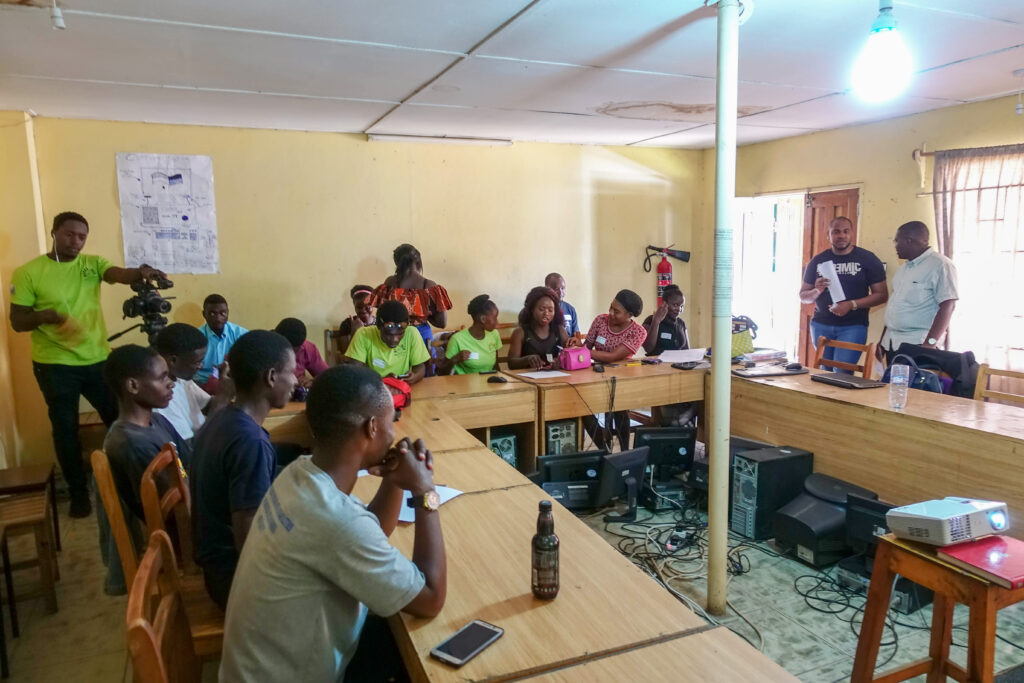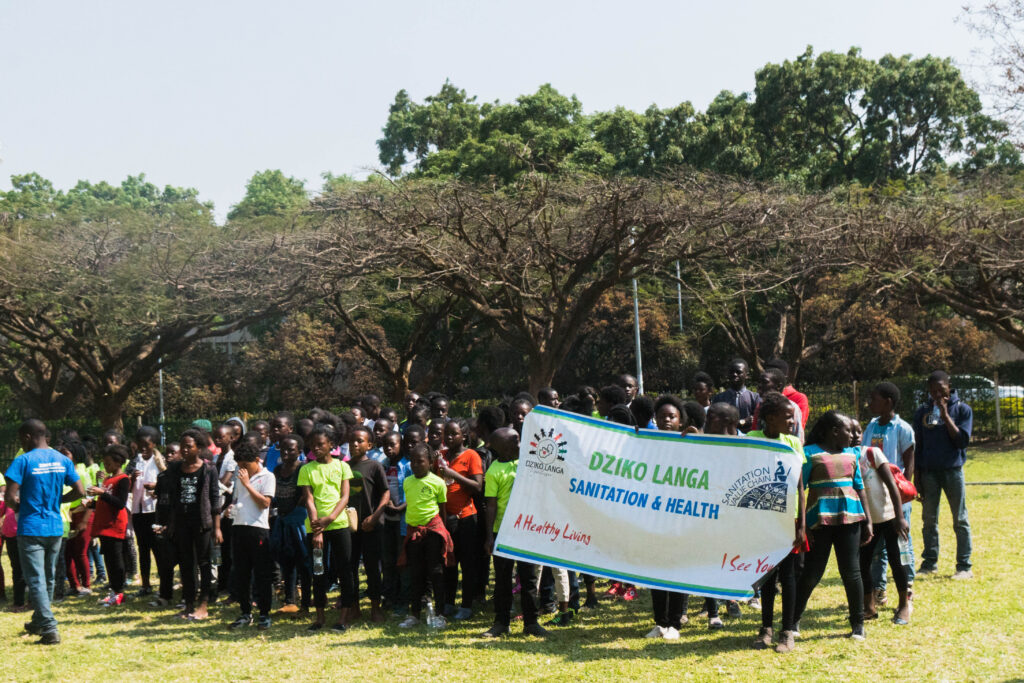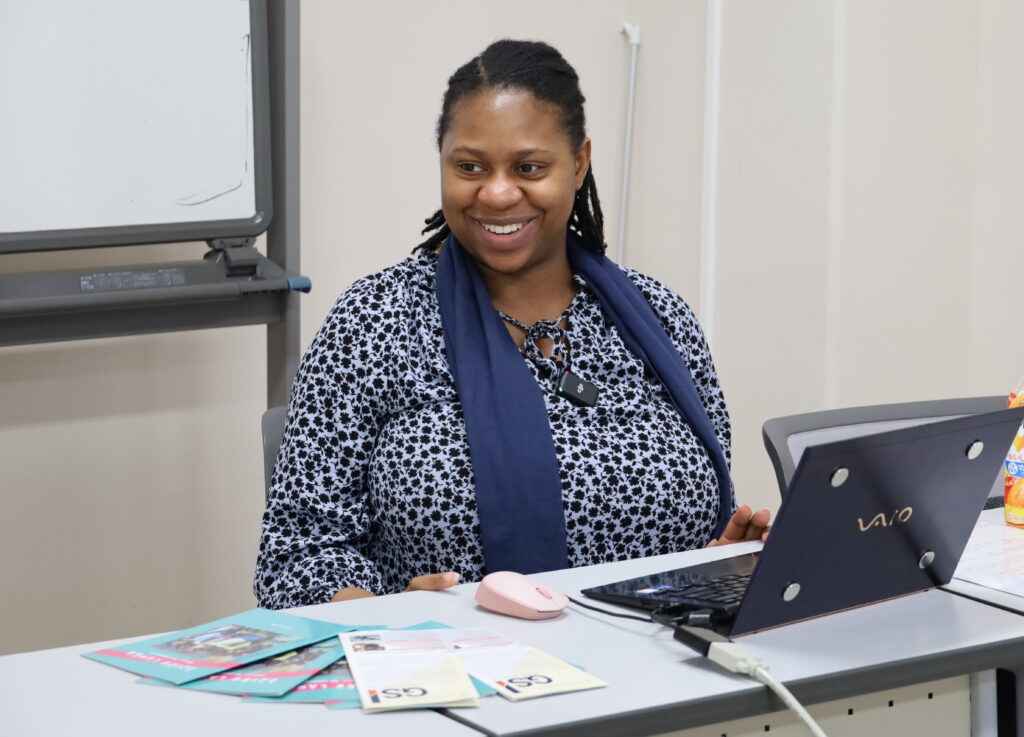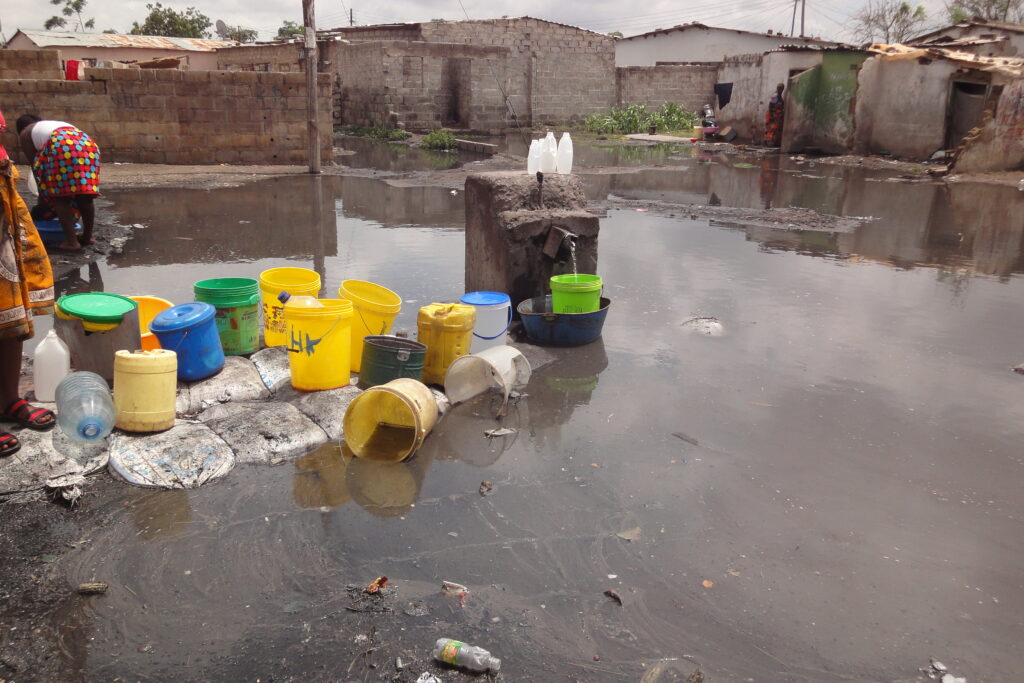Poor practices in water, sanitation, and hygiene (WASH) lead to diseases and early deaths. Assistant Professor Sikopo Nyambe of Center for Ainu and Indigenous Studies (CAIS) and the Global Station for Indigenous Studies and Cultural Diversity (GSI) at Hokkaido University has seen that it takes a village to make a change. She uses a participatory approach by engaging Zambian youth to perpetuate the education of good WASH-related practices within communities.
Lusaka, the capital of Zambia, houses over 3 million people. Around 70% of the population, however, inhabits Lusaka's peri-urban areas. The term "peri-urban" is synonymous with "slums" in the context of her research. These areas are characterized by limited municipal facilities-including access to tap water and proper sewerage.
Nyambe described the common system of water supply in Lusaka's peri-urban areas, "Many buildings and households in such areas are not installed with tap water. To retrieve water, the locals must walk to a communal tap and queue up. Also, some places do not have water access 24/7."
The inadequate WASH systems and management lead to contamination, diseases (e.g., diarrhea, cholera, typhoid, and dysentery), and eventually death. Nyambe pointed out that around 11.4% deaths in Zambia are related to WASH. The peri-urban areas tend to have outbreaks of diarrheal diseases at the beginning of the rainy season.
In 2017, Nyambe helped establish Dziko Langa (my community in Nyanja language), a group consisting of peri-urban Lusaka's children and youth who wish to improve their community's well-being. They have taken part in community engagements, and initiated research-based interventions, encouraging the locals to build a better living environment.
With other academics, including Hokkaido University, Nyambe provided multiple training sessions for Dziko Langa focusing on WASH, community engagement, data collection, etc. These trainees will in turn teach other people in their communities. "We, the researchers, do not own Dziko Langa; it belongs to the community. As researchers we support them in the training, funding, etc. Our goal-oriented research has an end, but their lives continue. That is why we hope to pass down the knowledge to future generations."
Dziko Langa is a part of a Participatory Action Research (PAR) study. Nyambe considers PAR a fitting research approach involving local and/or Indigenous communities. "With PAR, both sides (researchers and the locals) can communicate on equal terms. As researchers we have so-called academic resources, but we do not have the same depth of knowledge as the locals. I found that through PAR we can connect with the locals by listening to their stories from their own voices."

A workshop led by Hokkaido University's researchers (Photo by Yoshimi Kataoka, Faculty of Engineering, Hokkaido University)
One way to deliver those self-voiced stories is through photovoice, a method in which the youths of Dziko Langa are provided with cameras to take snapshots of their daily lives, particularly any WASH-related matters. Similarly, the younger children create drawings. Through these visuals the children and youth articulate their perspectives by taking into account their cultural and community's values.
"With photovoice, the youth have more confidence to engage and have the freedom to share what is happening. This way, they show themselves as the "experts" of their own lives," said Nyambe. The photos do not remain in isolation; they are further analyzed for the next step: the intervention.
"My research is currently focusing on the intervention, 'What is the best way to intervene? How to obtain support to realize improvements?' It is important to listen to the local people's voices to answer these questions. Because, when it comes to their own lives, they know the priorities better than I do."
On a smaller scale, the interventions initiated by the youth have taken the forms of door-to-door waste sorting workshops and community clean-ups. The larger scale type of intervention exhibits their works to share their findings with the broader community. Dziko Langa's first exhibition in 2018 was attended by members of the parliament, media, academics, and community members.

One form of intervention activity involving Dziko Langa's children and youth: Dziko Langa Sanitation Festival in 2018. (Photo by Samuel Hanyika, Dziko Langa)
Dziko Langa is now registered under the National Youth Development Council in Zambia. The group has attended conferences such as the annual Zambia Water Forum and Exhibition (ZAWAFE). The opportunities allow them to network with various types of stakeholders (donor organizations, WASH-related professionals, business people, etc.) and with other communities. On March 27, 2024, an academic paper describing the details of Dziko Langa's actions was published in the journal Trajectoria (video included).
Nyambe stated that every community has their own WASH-related issues. "The problems could be similar; but the system, the structure, the culture, and the environment might be different," said Nyambe. "For example, the aging population that Japan is experiencing entails the decreasing number of personnel to manage sanitation facilities. Additionally, Japan also faces the problem of Period Poverty (Menstrual Health and Hygiene) which is closely related to WASH."
Based on this globally shared concern on WASH, Nyambe and her Hokkaido University colleagues currently also play a key role in another PAR project on WASH called Co-Co WASH. Involving researchers and youths from multiple countries-Zambia, South Africa, Botswana, and Japan-this multinational cooperation includes more environmental assessment.
Written by Aprilia Agatha Gunawan








